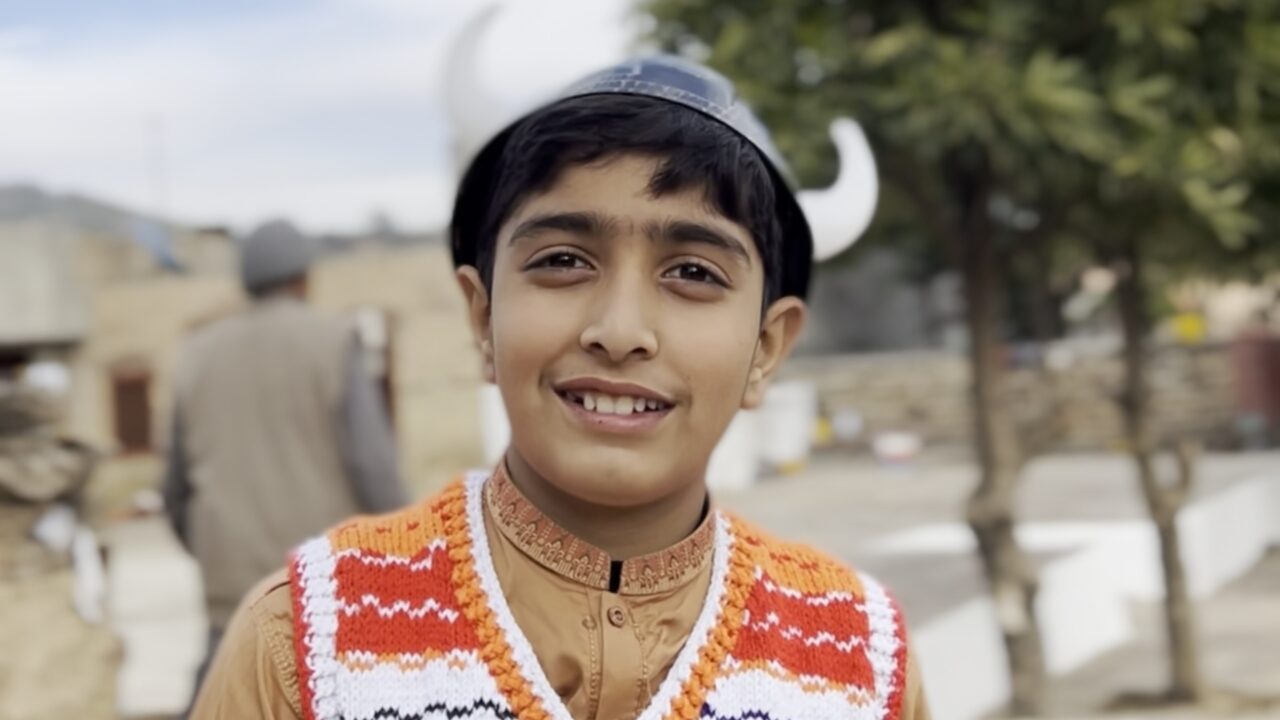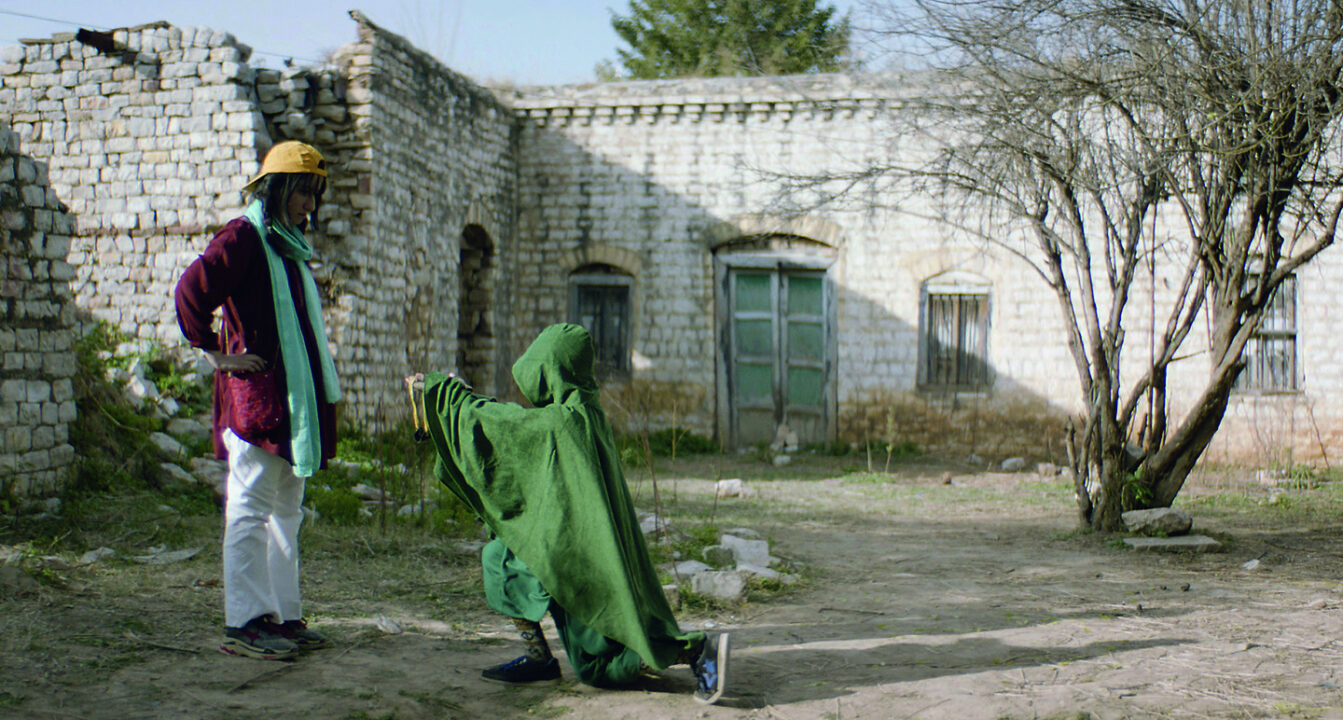Text by Rebecca Anne Proctor
Photos by Camille Blake
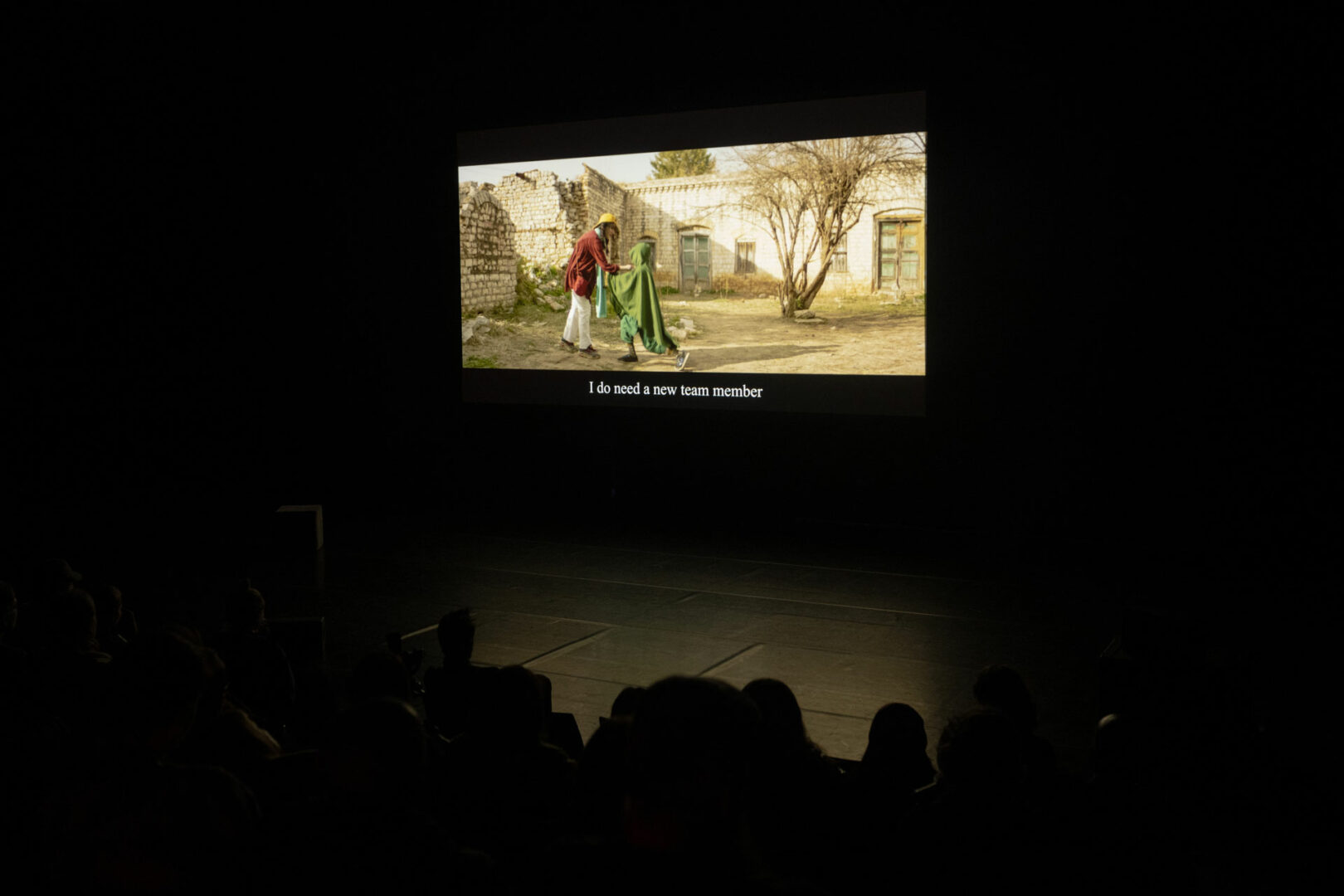
During a time of great uncertainty, when it feels as if the world has gone mad, where trust in society, governments, and perhaps even fellow human beings, seems to have gone out the window, what is the use of telling a story? Humor, according to Islamabad-based filmmaker, artist, and lecturer Hamza Baig, is a key ingredient. His upcoming live-action comedy series called The Marblous Four reimagines the game of Five Stones to shed light on the traditions and heritage of his native Pakistan, and speculate on what a homegrown superhero might look like. Rarely played today, the game used to be a crucial way for the Pakistani community to come together. For the series’ first episode, which Baig wrote under the mentorship of British comedian Daliso Chaponda, he decided to revive this once beloved pastime, but with a surreal, comedic twist.
In the imaginary village of “Geetapur,” inspired by present-day Chakwal in the Punjab province of Pakistan, children are born with a set of five stones. The stones are magical and become powerful tools in the hands of animated superheroes, who come to life throughout the film. The game was traditionally played outdoors between competing teams or individuals in a large open space. But now, in the age of technology, with children and adults on their cell phones, the game has increasingly become an activity of the past. Baig demonstrates this through two protagonists played by local boys who, in the pilot’s opening scene, attempt to film an older woman playing with her stones. Mocking the “ancient” tradition, the boys are determined to create an incredible clip to upload on YouTube and gain thousands of followers. But the woman’s stones turn out to have unknown powers, and she beguiles them with her storytelling. “One of my inspirations was to revive Pakistani art and culture,” says Baig. “When I researched, I didn’t find anything on Pakistani games. It’s not archived anywhere. There are no films or stories about the game. Children don’t even know about it.” Just two generations ago, he says, the game of Five Stones was played regularly throughout Pakistan. He wanted to show its importance, how it brought people and the community together. And to do so, he filmed only with amateur actors in the village where he grew up, casting relatives and their neighbors who had no prior acting experience. “They added a unique charm to the film because through them we witness real, present-day Pakistani culture,” he adds.
Baig’s short films, which have garnered awards at various national and international festivals, center on themes of childhood, nostalgia, family, and forgotten traditions. He consistently weaves humor into his otherwise dramatic plots, thereby showing another, lighter side of reality. Baig also works as a lecturer of film in the Mass Communication department at the School of Social Science and Humanities, NUST, Islamabad. “Pakistan has been plagued by economic instability, political instability, religious extremism, and sectarianism,” Baig states. “We’ve always lived in this mess but within this mess is also beauty, and a lot of love. We have learned to navigate the mess with love, and that love is humor.”
Comedy has a long history in Pakistan that dates back to even before the country’s partition with India in 1947. Laughter is arguably a crucial element to most art forms on the Indian subcontinent, used as a way to soften political and socio-economic problems, bind the community together, and broach taboo topics. Arguably the most recognized and best documented tradition of comedy on the subcontinent can be traced as far back as the 15th century, to the reign of Akbar the Great, the third and best known Mughal emperor, who reigned from 1556 to 1605.
Akbar’s reign was the peak of Mughal power over most of the Indian subcontinent. Yet he also presided during a time of dark circumstances such as disloyalty among his own followers and threats from Hindu generals. Wit, humor, and laughter were a way for Akbar to preserve his benevolent rule during a challenging time without transforming him into a despot. In the book Doolally Sahib and The Black Zamindar: Racism and Revenge in the British Raj (Bloomsbury, 2022) by writer and journalist M. J. Akbar, the author underlines how under Akbar the Great humor was used as a “bond of confidence that sought to check power from becoming pompous.” In the book’s first chapter, he writes: “Monarchs without tolerance for laughter lost their compact with the people. In the political lore of India, the iconic king was blessed with an iconic jester.” Similarly, Baig’s film uses humor as an act of resistance and a way to revive Pakistani heritage and tradition in the face of countless socio-economic and political challenges, to unite local communities again.
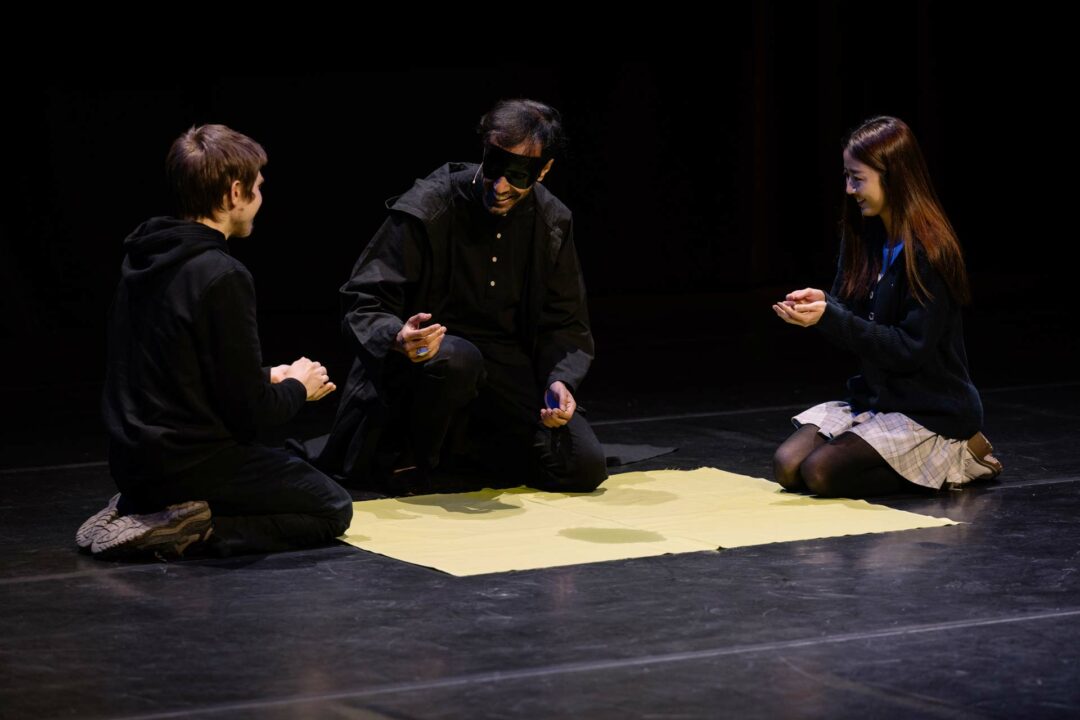
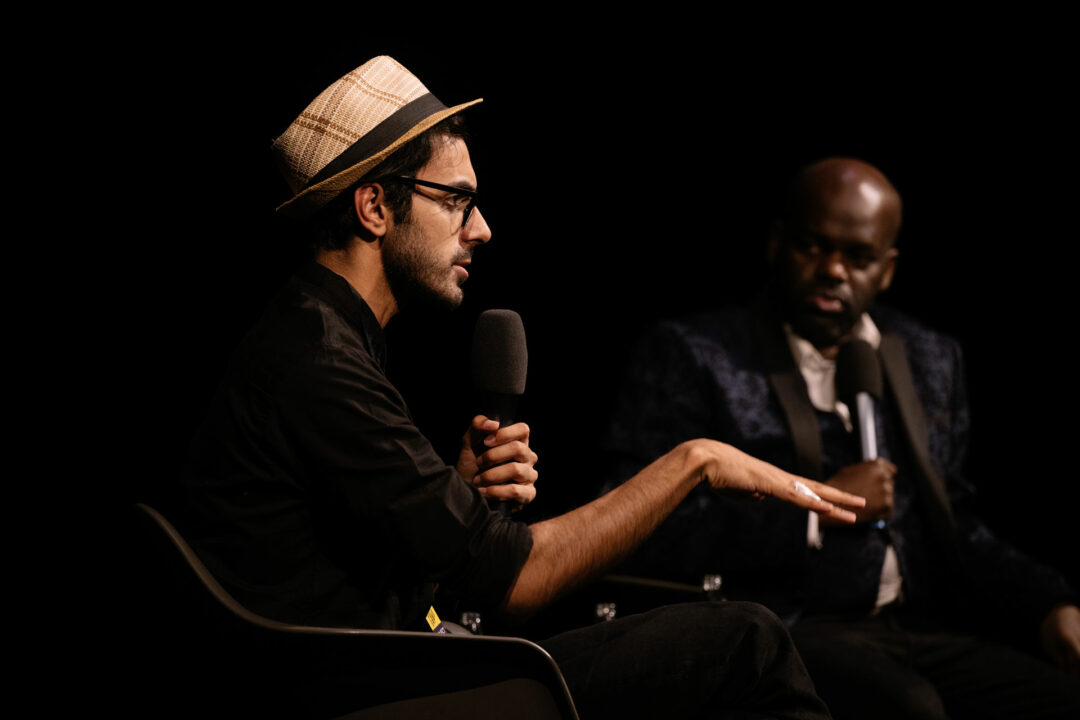
“Humor comes naturally to us because we are so sensitized to the mess around us,” Baig explains. “Humor is a way to live for us. It’s a survival and defense mechanism. We must laugh—otherwise I think we’ll just stop existing. In a country like Pakistan, laughter is all we have. It provides us with a sense of catharsis and relief.” Through revisiting a local tradition in his project, Baig also celebrates Pakistani women. The older woman’s storytelling, which frames the series’ story-within-a-story narrative thrust, captivates the young boys and compels them to consider the power of community. The boys, and the viewers, become engrossed in her tale about the adventures of a young woman whose attempt to help her community with her set of magic marbles repeatedly ends in disaster. She is a comical anti-hero, a superhero with a broken superpower, but her real power resides in her ability to spark the boys’ interest in the old game. As the elderly woman finishes her tale, the young boys take out their video recorder again—but suddenly, an animated magical stone appears and zaps the device, which goes up in flames. It’s a humorous special effect with a lesson: technology and its ills don’t have the power to save a village, but reviving traditions and sharing one’s humanity might.


